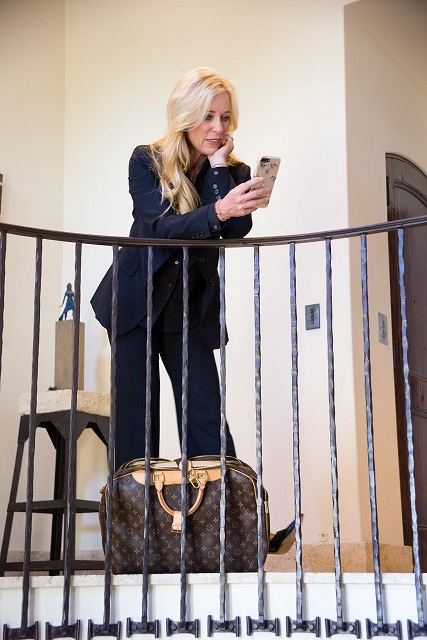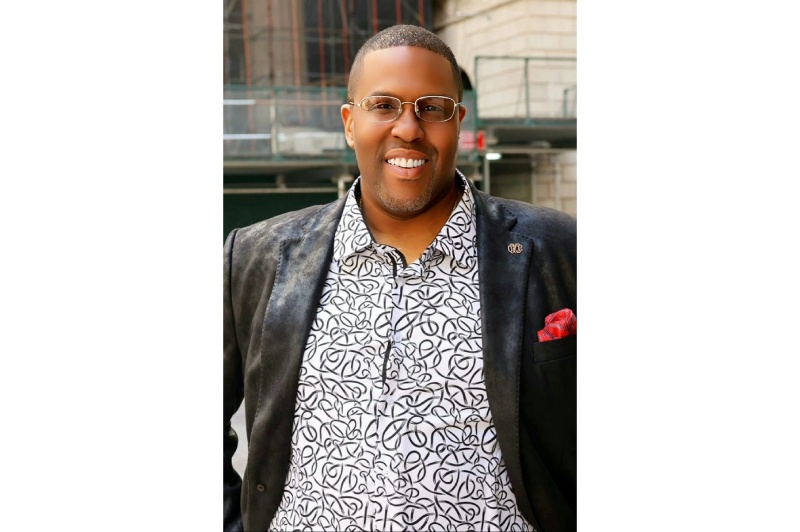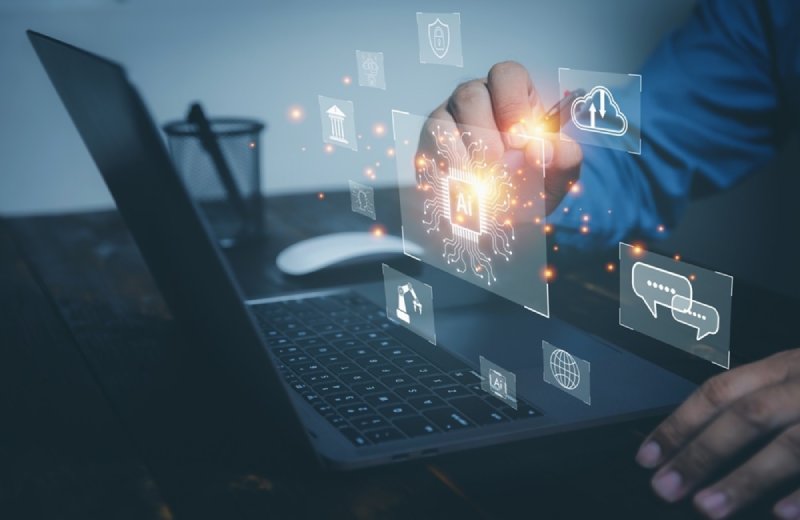As part of my series about the “How Business Leaders Plan To Rebuild In The Post COVID Economy”, I had the pleasure of interviewing Jennifer Kem.
Jennifer “Jen” Kem is a San Francisco Bay Area-based branding and marketing expert who gets entrepreneurs seen, heard, and paid for being themselves.
She’s the creator of the Master Brand Method: a framework to develop powerful brand archetypes that win customers’ hearts, leveraging Jennifer’s 17 years of corporate experience and her launching of multiple companies. She uses the Master Brand method in digital strategy coaching for emerging entrepreneurs, celebrity brands like Oprah Winfrey Network and Steve Harvey, and major corporations including Verizon, Blue Cross Blue Shield, and Bank of Hawaii.
Jennifer serves up straight talk wrapped in love because she understands entrepreneurs’ challenges: She built a retail business and became a millionaire at 32, only to lose it all in the recession two years later. She is now the successful owner of three million-dollar brand-building businesses and the mother of three children.
Thank you so much for your time! I know that you are a very busy person. Our readers would love to “get to know you” a bit better. Can you tell us a bit about your ‘backstory’ and how you got started?
Ivividly remember career day as a little girl: me sitting at my desk as I watched the boys stand up proudly and announce how they were going to be firefighters, or police officers, or world leaders when they grew up. When it came around to my turn, I pulled myself out of my seat just as confidently and proclaimed, “I am going to be the General Counsel for Coca-Cola!” Giggles and groans followed my comment leaving me confused. After class, my teacher pulled me aside and scolded me for the answer as she thought it was a joke.
This story marks the beginning of my big dreams and all the obstacles that I would confront along the way. In college, I redirected myself from law to business and began my career in B2B technology marketing. Quickly, I committed myself to the most challenging projects and created success in order to impress the leadership team and fulfill my dream to be a CMO. Again though, just like at school, I observed the men being promoted before me while I continued to be restricted and scolded for my vision of success. I began to crave autonomy and authority that was not being offered to me in my corporate environment.
In 2006, I developed a 9-month exit strategy and launched Hawaii’s first lingerie brick & mortar store. Within months, thanks to Oprah promoting the Spanx brand on national television which caused a tidal wave of interest in investing in “underclothing”, I was a multimillionaire at the age of 32. Then the 2008 financial crisis hit and I lost everything. Through coaching, mentors, and family support, I went back to my bread and butter of branding and marketing and started a consulting firm, landing my last corporate company as my first client. Accompanying so many businesses through the brand-building process, I began to notice patterns that guaranteed success and created the Master Brand Method, a framework that utilizes Jungian archetypes to define brand identity and attract complementary clientele.
Through exponential growth, I have been able to launch an entrepreneurial learning campus called Master Brand Institute, in the San Francisco Bay Area. Additionally, I have continued to recognize the unique internal and external challenges of female entrepreneurs in male-dominated industries, so I have created Femmefluence, a platform for women to increase their affluence and influence.
Can you share a story about the funniest mistake you made when you were first starting? Can you tell us what lessons or ‘take aways’ you learned from that?
During the 2008–2009 financial crisis, I was determined to keep expanding my lingerie business. Large women’s intimates companies like Victoria Secret considered states like Hawaii and Alaska to be “international territories” and so did not serve these populations. My business in Hawaii was so successful and I was determined to offer the same solution to the Alaskan market, which I was convinced would be equally profitable. The problem with retail, however, is there are few cash reserves in the business model. So, I had plenty of cash on hand as long as the consumer continued to spend. I thought cute bras and panties would still be seen as a necessity through the recession, but wow was I wrong. It turns out that lacy lingerie is not on top of people’s priority lists in an economic downturn!
Even though I had been advised by trusted financial guides to save cash flow and wait until the economy improved to continue business expansion, I didn’t listen. I expanded anyway, went into lots of debt as consumers stopped spending on women’s undergarments, and lost everything. My take away: LISTEN! I have learned in business that I’m not supposed to be good at everything, but instead surround myself with competent consultants to help fill in the areas where I need to improve and then listen to the advice they provide for the betterment of my business.
Is there a particular book that you read, or podcast you listened to, that really helped you in your career? Can you explain?
My top 5 books for any business are:
The Tipping Point by Malcolm Gladwell
Purple Cow by Seth Godin
To Sell is Human by Daniel Pink
The 22 Immutable Laws of Marketing by Al Ries and Jack Trout
StoryBranding by Jim Signorelli
The Tipping Point is the one book that I consistently recommend to my clients because it gets to the heart of how humans behave. It addresses how my clients can harness that behavior to create momentum in their ideas and subsequently their revenue and growth. It has a lot of everyday examples that are very relatable to our everyday lives.
The other books are about marketing and sales. All businesses have to be good at these to grow so they can move into scaling and sustainability.
Extensive research suggests that “purpose driven business” are more successful in many areas. When you started your company what was your vision, your purpose?
I wanted to support individuals to build and sustain their dreams through entrepreneurial enterprises. I was born on the sugar plantations of Hawaii as a second generation Filipino immigrant. I watched my grandmother, Generosa, work her way out of poverty by becoming the family’s first shepreneur: she opened her doors to be an in-home elderly care facility. All of the privileges that I have received in life began with my grandmother sewing seeds in the fields to caring for those in need. I believe strongly in the possibility of building wealth literally from the ground up and want to share my know-how with others to ensure that they’re successful.
Do you have a “number one principle” that guides you through the ups and downs of running a business?
Being “values-driven” is the number one principle in my business and all of my activities revolve around that. This means that the ideas we choose to launch, the team we’re building, and the clients we’re attracting and serving are in alignment with our company’s core values: autonomy, justice, generosity, leadership and legacy.
Knowing our values and making decisions through them helps us to create smart and sustainable goals, as well as keeps us motivated when times get hard. We teach this concept as our campus core as well because we know it’s the nucleus of what a strong business foundation is built upon.
Thank you for all that. The Covid-19 pandemic has affected nearly every aspect of our lives today. For the benefit of empowering our readers, can you share with our readers a few of the personal and family related challenges you faced during this crisis? Can you share what you’ve done to address those challenges?
Master Brand Institute has a physical campus where my team and clients are accustomed to gathering to dream, strategize, and execute. This allows for as clear of boundaries as possible between work and home life. I leave for work in the morning and return in the evening to have dinner, help with homework, play as much as possible, and then tuck the kids into bed.
COVID-19 has forced these boundaries to be broken as now I must run my daily work activities from my home office. Additionally, it has changed the daily routines of my team and our clients who were used to meeting us in-person. My five-year-old is having a difficult time understanding why mommy was home but couldn’t eat with him, or help with homework, or especially play! So we came up with a new family routine where I “go to work” in my home office, close the door, and am not to be disturbed. At lunch, I come out, eat with my kiddo and play a bit before returning “to the office.” I’m privileged to have the additional space and support to separate work and home as much as possible right now.
Can you share a few of the biggest work related challenges you are facing during this pandemic? Can you share what you’ve done to address those challenges?
So much of who we are as a company is about bringing people together to inspire them and create networking opportunities. For example, we have our campus, we just were about to launch a women’s co-working space called HerQ, and we had a number of live events already organized. All of this had to be made virtual overnight: my entire team now runs remotely, the opening date of HerQ has been pushed back to some open-ended date when co-working is considered safe, and all events have been made virtual.
These changes not only impact the purpose of these events, as in-person connections are so much more effective than digital ones, but virtual operations also require team members to learn, adapt, or have different sets of skills than they may be accustomed to utilizing. My team members and clients are also struggling with their emotional and financial health in unanticipated ways. Branding strategies for all of our clients have shifted dramatically, as the needs of the consumer and the economy have changed so drastically so quickly.
In order to respond to these challenges, we have instituted check-ins at the beginning of our virtual calls, allowing team members to ask for support when necessary. We also have a therapist on staff and encourage team members to utilize applications that support their mental wellness. Additionally, we have created a virtual community for our clients to receive resources and advice from successful entrepreneurs who have effectively navigated economic recessions in the past. We are also launching a branding workshop about retaining client trust through helper leadership and authentic, community-centered messaging during this time.
Many people have become anxious from the dramatic jolts of the news cycle. The fears related to the coronavirus pandemic have understandably heightened a sense of uncertainty, fear, and loneliness. What are a few ideas that you have used to offer support to your family and loved ones who were feeling anxious? Can you explain?
When I lost my lingerie business, I was a hot mess: I spent the days after losing my business on my grandmother’s porch weeping. This didn’t last just one day, but months and my daughter eventually got tired of it. She came out of the house, sat down with me on the curb, and said, “You know what, Mommy? You’re Jen Kem and you need to start acting like it.” At that moment, I remembered myself again and realized I could get back on my feet. I began creating a support system that would help me to rebuild financially, emotionally, and psychologically.
I think COVID-19 is making a lot of people question everything like I was back in 2008 and I want to lead like my daughter showed up for me. I’m not immune to the toll the pandemic is taking. Every morning I wake up and sweat and cry out all the stress and uncertainties that are arising in me on my Peloton bike. But when I get dressed, I pull myself together and show up as Jen Kem: the entrepreneur with nearly 20 years of professional experience who has already hit rock bottom and wants to support others so that they don’t have to. Because both sides of me exist, and it’s up to me to model authenticity for me first, so that I can do the same for others.
The trick to managing anxiety is to understand its source. So, if you are lonely, then invite social time into your daily routine through virtual calls with friends or family, or “virtual water cooler breaks” throughout your work day. If you’re nervous about money, research government and/or private assistance programs, or think about creative ways to earn income, or adjust your budget to ensure you have more cash on hand. As for uncertainty, focus on the micro- movements of each day because those are always certain. If the news cycle is stressing you out, take a break and introduce a gratitude practice to reorient your mind around what’s going well.
Obviously we can’t know for certain what the Post-Covid economy will look like. But we can of course try our best to be prepared. We can reasonably assume that the Post-Covid economy will be a trying time for many people across the globe. Yet at the same time the Post-Covid growth can be a time of opportunity. Can you share a few of the opportunities that you anticipate in the Post-Covid economy?
I think that the post-COVID-19 consumer is going to be focused on community-centered businesses as there will be such a greater awareness of the communal needs. This global shift in spending priorities will promote socially conscious capitalism that business leaders can utilize in their branding, business infrastructures, and operational strategies.
From an internal operational perspective, many employees will be accustomed to flexible work from home schedules and arrangements. It’s important for employee retention that a balance, let’s say of 60/40, be allowed for work from the office to work from home capabilities. Additionally, the gig and barter business exchanges will be leveraged as individuals find creative ways to create revenue streams, so business owners can utilize new relationship capital that may be more affordable or based on service opposed to monetary exchanges.
From a branding perspective, this is a great time to set yourself apart as a service leader, someone whose personhood and business supports the needs of the community. Retaining and acquiring clients is all about trust. When spending is conservative, it’s important that you stand apart as a trusted brand.
How do you think the COVID pandemic might permanently change the way we behave, act or live?
I hope that it changes us all for the better. We have a real opportunity to be more aware of individual and communal needs and to address them as a collective. From better mental wellness resources, to economic support programs for those who need assistance, to families, friends and neighbors understanding the importance of personal connection. I love my values-driven life model and would love to see others implementing it in personal and professional ways: living for the fulfillment of self and the support of others and utilizing all of our personal and communal resources to meet those ends.
Considering the potential challenges and opportunities in the Post-Covid economy, what do you personally plan to do to rebuild and grow your business or organization in the Post-Covid Economy?
Based on my experience from 2008, I learned the lesson to have adequate cash reserves in my business, and that’s helping me feel some relief from the shut-down. The best thing we can do now is teach entrepreneurs how to re-build their businesses and restore their confidence. My business has both offline and online components and revenue streams, which will be an important model for companies post-COVID to find more leverage. So, we’ll be focusing on helping them to build a similar model in the foreseeable future. Investing in like-minded businesses is another focus, where we’ll gather resources and help each other collectively in funding and education. We will commit to matchmaking with businesses that can do the same.
Similarly, what would you encourage others to do?
I encourage people to be a part of communities where there’s diversity in industry and culture because a one-way approach to business (and life for that matter) will not be relevant in the world that’s unfolding now. People are looking for leaders and in order to be seen as a leader, companies must build trust through consistency, affiliations, and brand building, which is so much more than simply running a business.
Can you please give us your favorite “Life Lesson Quote”? Can you share how that was relevant to you in your life?
“Be committed, not attached.”
This means that in everything you choose to do, be committed. Do the steps and learn the lessons along the way. But don’t be attached to a finite outcome, or you’ll be disappointed. Having a goal is good, but the journey to get there could end up being different than what you imagined. Whenever I’ve been attached to an outcome, it has felt hard, demotivating and exhausting. When I have the mindset of commitment and an openness to possibility though, I know that what will unfold from my actions will provide clues to where to head next. This feels freeing and often offers surprising opportunities that I couldn’t have anticipated.
How can our readers further follow your work?
You can learn more about me on my website at JenniferKem.com, and more about my Femmefluence platform at Femmefluence.com. I am also on all the major social media platforms at the following links:
Facebook biz page: https://web.facebook.com/JenniferKemComm/?_rdc=1&_rdr
IG: @jennifer.kem
Twitter: @JenniferKemComm
LinkedIn: linkedin.com/in/jenniferkem
Thank you so much for sharing these important insights. We wish you continued success and good health!
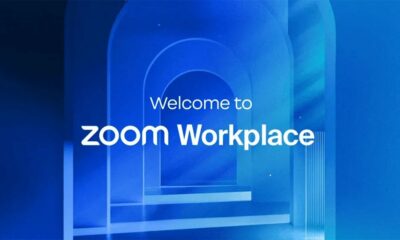
 Technology4 weeks ago
Technology4 weeks ago
 Technology3 weeks ago
Technology3 weeks ago
 Technology3 weeks ago
Technology3 weeks ago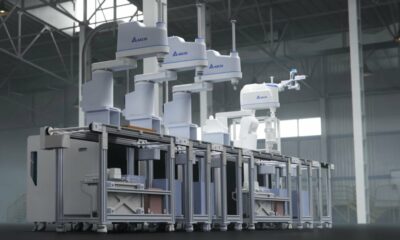
 Business4 weeks ago
Business4 weeks ago
 Technology4 weeks ago
Technology4 weeks ago
 Technology4 weeks ago
Technology4 weeks ago
 Technology3 weeks ago
Technology3 weeks ago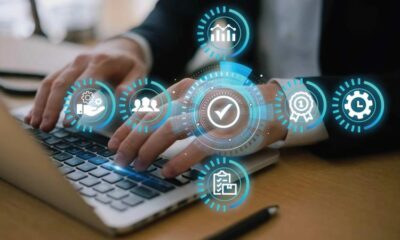
 Technology3 weeks ago
Technology3 weeks ago

